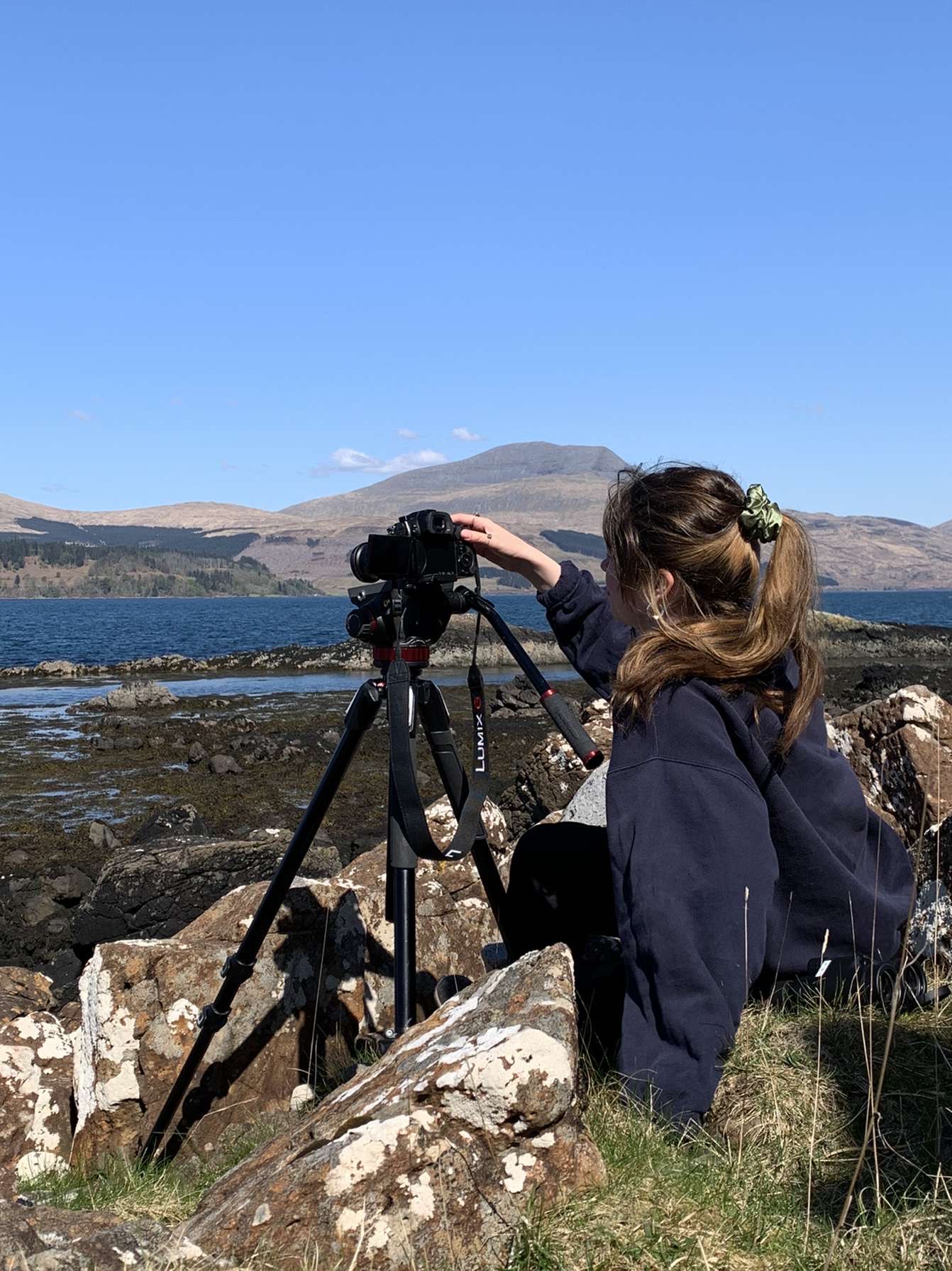

Meet Lydia, a final-year student pursuing her passion for wildlife media. Inspired by popular shows like Springwatch, Lydia's love for the natural world led her to choose this unique course. One of her most cherished moments was capturing the enchanting otters on the Isle of Mull for her final project. Despite the hurdles posed by COVID-19, Lydia has persevered and flourished. Discover more about Lydia's incredible journey here.
What or who inspired you to get into wildlife media?
I got into wildlife media because I used to love watching shows like Springwatch and Autumnwatch with my dad on TV as a kid. We would have a whole week dedicated to it in the spring and elsewhere we watched it every weeknight. Those shows, hosted by Chris Packham and Gordon Buchanan, really got me interested in wildlife filmmaking. I would tell my parents that I wanted to do something like that someday. I even did an A level in photography, but I didn't see a clear way to pursue my passion for photographing animals through it. Then someone suggested looking up wildlife media courses, and that's when I found this one. So, you could say that it was TV that inspired me to pursue this career.
Why did you choose to study wildlife media at the University of Cumbria?
I chose this unique course because it was the best fit for me. When I found this course, it immediately checked all the boxes. It wasn't solely focused on photography, so I wouldn't be limited to this, and it included the biology side, teaching modules on taxonomy, animal behaviour, and even touching on evolution. It had everything I was looking for in one course.
What has been your favourite experience studying wildlife media at the university so far?
For my final major project, I had a lot of creative freedom. I could choose any wildlife subject to film and go anywhere for it, and even applied for funding, such as the Hadfield Trust. I decided to film otters on the Isle of Mull for my project, as they are my favourite animals. It was an incredible experience, and I captured a lot of footage. It was definitely a highlight for me, as I not only wanted to do it personally, but also knew it would contribute to my grade.
What is the Hadfield Trust and what does the application process?
I applied for funding from the Hadfield trust and received £500, which was incredibly helpful. The application process involved providing information about myself and answering questions about the project, its purpose, and how the money would be used. After the application stage, there was an interview and presentation round where I had to elaborate on my project to a panel of people. It was a bit nerve-wracking, but ultimately rewarding.
What advice would you give to other students then looking to apply for funding from the Hadfield Trust?
When it comes to the interview, what they're really looking for is your passion. Choose a project that truly interests you and showcase your enthusiasm. They will appreciate that. If you have a strong passion for your project, it will drive you to overcome any obstacles that come your way. So, during the interview, be thorough, be passionate, and exude confidence. Engage in conversation and make a lasting impression.
What's been the most difficult obstacle you've overcome in your education journey so far?
In my first year, COVID had a significant impact on my university experience. Everything was online, and being stuck in halls was a strange start to my degree. However, I was still excited about moving out and being independent. Starting second year was a bit challenging as I had to adjust to the reality of university life. I realised that I couldn't treat it like freshers and had to take my studies seriously. I reached out for help whenever needed, sending emails to confirm if I was on the right track with assignments. The university staff were always prompt in their replies and provided guidance when necessary.
What advice would you give to others who want to get into wildlife media?
To succeed in this course, it's important to be passionate, interested, and open to taking opportunities that come your way. There are numerous opportunities available, but it's up to you to seize them. Building professional links and contacts is also valuable.
I had the chance to work with Keith Partridge, a Professor of Practice (now a member of the academic team!), and we developed a great rapport. During one conversation, we discussed Gordon Buchanan, a wildlife filmmaker I admired. To my surprise, Keith, who is friends with Gordon, connected me with him. As a result, I had the opportunity to film with the Mull Otter group, and there is a possibility that Gordon might narrate the final film! It's a prime example of leveraging contacts and seizing opportunities that come your way.
How is university life beyond just studies?
I've had a great time outside of university life, especially with my friends. We lived together in halls and then in a house near campus, which has been very convenient. Our accommodation at Brampton Road halls is super cheap, at an incredibly good price. It's a great deal cheaper when compared to others paying over £100 a week for similar accommodation.
What is student life like in Carlisle?
Carlisle has lots of really nice restaurants, bars, and cocktail places, considering its size. There's also a cinema, and popular spots like Walkabout. Additionally, the Lake District is accessible, and I've had the opportunity to film there and enjoy day trips.
I decided to film otters on the Isle of Mull for my project, as they are my favourite animals. It was an incredible experience, and I captured a lot of footage. It was definitely a highlight for me, as I not only wanted to do it personally, but also knew it would contribute to my grade.
